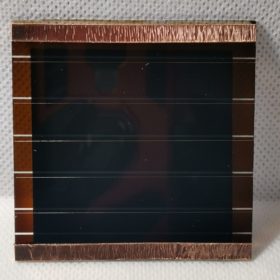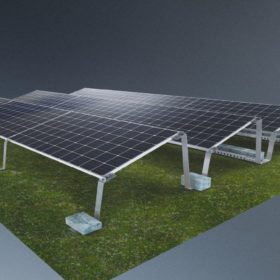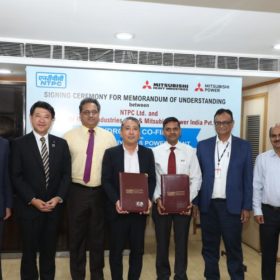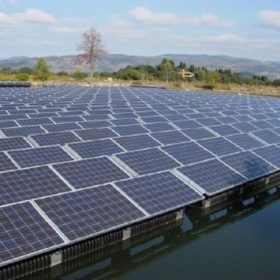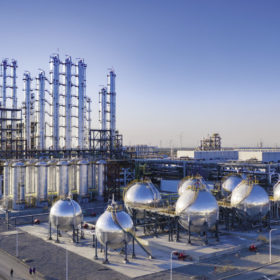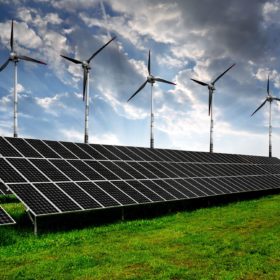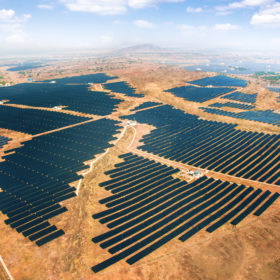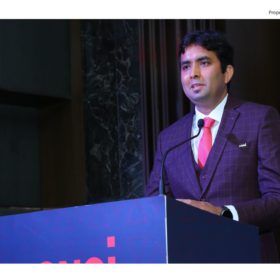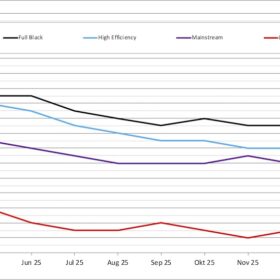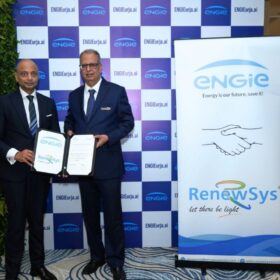GreatCell achieves 32% efficiency for inorganic perovskite solar cell
Australian manufacturer GreatCell has built a cell with roll-to-roll coating technology. It designed it without a hole transport layer (HTL) and used carbon composite back contacts, which offer excellent electrical conductivity.
Aerocompact launches high-elevation mounting system for rooftop PV
Portuguese startup Solarud has unveiled the next generation of its water-draining device for PV panels with low, sloping inclines. The new design avoids clogs caused by sand and dust, in nano and customized versions that fit installations and modules of different sizes.
NTPC, Mitsubishi sign MoU for hydrogen co-firing in Auraiya gas power plant
NTPC and Japan’s Mitsubishi Heavy Industries (MHI) have signed an agreement for hydrogen co-firing in MHI’s gas turbines installed at NTPC Auraiya gas power plant in Uttar Pradesh. The two companies will collaborate to carry out the study and identify key actions for introducing hydrogen co-firing blended with natural gas.
SJVN signs 1 GW floating solar deal with Assam government
SJVN’s green energy arm and Assam Power Distribution Co. Ltd have agreed to develop 1 GW of floating solar project in Assam through a joint venture.
Torrent Group commits $7.28 billion renewables investment in Rajasthan
The Group will invest more than INR 60,000 crore ($7.28 billion) in setting up renewable energy projects, including green hydrogen, in the Indian state of Rajasthan.
Global polysilicon capacity could hit 536 GW by end of 2023
Clean Energy Associates said in a new report that it expects polysilicon production capacity to exceed PV installations next year.
Wind, solar payback times under a year in some parts of world, says Rystad
Record energy prices, particularly in Europe, are driving demand for renewables and energy storage. That is changing the equation for utility solar and wind investment and shortening project payback times to under a year in some regions. Storage deployment, driven by recent policy developments around the world, is also expected to get a big boost through to 2030.
Coal India to set up 1.19 GW solar project in Rajasthan
The state-owned coal miner has signed a deal to set up the project in Rajasthan Vidyut Utpadan Nigam Ltd’s 2 GW solar power park in Bikaner. The estimated cost of the solar project is INR 8,000 crore ($974 million).
Pennar Industries secures 625 MW DC solar project from NTPC REL
The Hyderabad-based diversified engineering firm has won an INR 1,167 crore ($141.64 million) contract to install, commission, and provide three-year operation and maintenance support for a 625 MW DC solar project in Rajasthan.
Longi eyes green hydrogen market in India
Longi is entering the green hydrogen market in India with its alkaline electrolyzer offerings. It will also roll a next-generation Hi-MO solar module later this year, which, it says, will outshine all the prevailing panel technologies.
